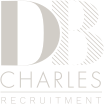When navigating that all-important job hunt, the nerve-wracking interview process often takes up most of our attention. However it’s no good focusing on improving your interview skills if your CV is never going to get you into that room in the first place.
They say first impressions matter and, when you really think about it, your CV is the first impression you’re going to make on any potential employer – as well as your first chance to make yourself stand out from a pool of candidates.
So, how do we make sure we’re making the best first impression possible? Here’s our essential guide on how to write a CV, packed with top tips and hints for giving your potential employer what they’re looking for and getting your foot in that door.
Length
While you might feel like the more information you can fit on your CV the better, the truth is that your prospective employer is going to have a lot of CVs to get through, and they don’t have time to read an essay. Your aim should be to give them all the information they need in as little time and space as possible; in page terms, two pages should be plenty to include all of the relevant detail.
Content
If you’re finding it hard to narrow your CV down to two pages, it’s a good idea to check through your content to make sure you’re only including information pertinent to the role you’re applying for. Avoid long paragraphs as these can be off-putting. Instead, break your information down into easy-to-read chunks:
- Name & Contact Details – First and foremost, place your name and details where they are easy to see. You should always make it easy for your employer to contact you.
- Personal Statement – This is arguably the most important part of your CV. Try to keep it concise – two or three sentences – and tailor it to the role you’re applying for. It should ideally give employers a snapshot of what type of employee you are, and convince them to keep reading!
- Professional Experience – List, in reverse chronological order, your previous work history. Keep this brief and relevant. Unless you’re applying for a job in a similar field, your employer probably doesn’t need to know about the summer job you took in sixth form. Accompany each listing with a very short description of responsibilities and achievements in that position.
- Personal/Technical skills – List any unique skills you have that will make you stand out from other prospective candidates.
- Awards – You don’t need to go into too much detail here; just the name of the award and the year you received it will suffice. If relevant, you can include a short sentence on what the award was given for.
- Education – Don’t worry about listing every GCSE you took; writing something like ‘9 GCSEs, A-C’ will be fine, unless there’s a subject that’s relevant to the job spec. For example, if it requires a basic understanding of French, you may wish to highlight your French A Level.
- Professional Bodies or Memberships – Highlight any memberships to professional bodies here, as long as they are relevant to your desired role.
- References – You don’t always need to include the referees themselves, but it can be a good idea to mention that they are available on request.
Format
Formatting is equally as important as length when it comes to making a CV readable. Font size should be an easy-on-the-eye 12; feel free to choose a font that you like, but make sure that it isn’t a strain to read. Times New Roman, Arial, Tahoma, Century Gothic, Helvetica and Lucida Sans are all recommended.
Your name should appear where it’s easy to find at the top of the first page, so your employer knows exactly who they are reading about. You can choose how to order your CV sections depending on what needs to be highlighted most for your desired role. However, always make sure to leave space between each section and use bold, larger or underlined subheadings to make the CV easy to scan.
If you’re applying for a creative role, you can have a little fun with your CV, but never use colours or graphics that make the layout too fussy or difficult to read.
Language
While it might be tempting to use slang or colloquial language to make your CV stand out, this isn’t appropriate in every industry. Your skills and experience should sell themselves; using informal language, cliches or overly flowery language can obscure your achievements and leave you sounding unprofessional or unconvincing.
While your CV should be largely objective, you can influence your employer’s attitude by focusing on positive language and key words that will stand out as they scan it. Even if you’re addressing how you tackled them, avoid negative words such as ‘challenge’, ‘complaints’, ‘errors’, ‘loss’ and so on. Instead use empowering words such as ‘established’, ‘enhanced’, ‘innovated’, ‘delivered’, ‘achieved’ or anything else that will help your CV give a positive impression.
Try to identify and include keywords that your employer will be looking for too, such as specialist qualifications, sectors or systems.
Grammar
Even if you’re not applying for a writing job, your employer will want to see that you’re a competent and clear communicator. Spelling mistakes and typos can also make you look careless so always check, check and check again. You can use a spell checker (make sure it’s set to British English not American), but your best bet is to ask someone else to read over your CV for you.
While these are all great general tips on how to write a CV, the truth is that every employer is likely looking for something different. For more in depth and personalised help with perfecting your application, our CV clinics will make sure yours is in the best shape possible. Get in touch now to see how we can help.












